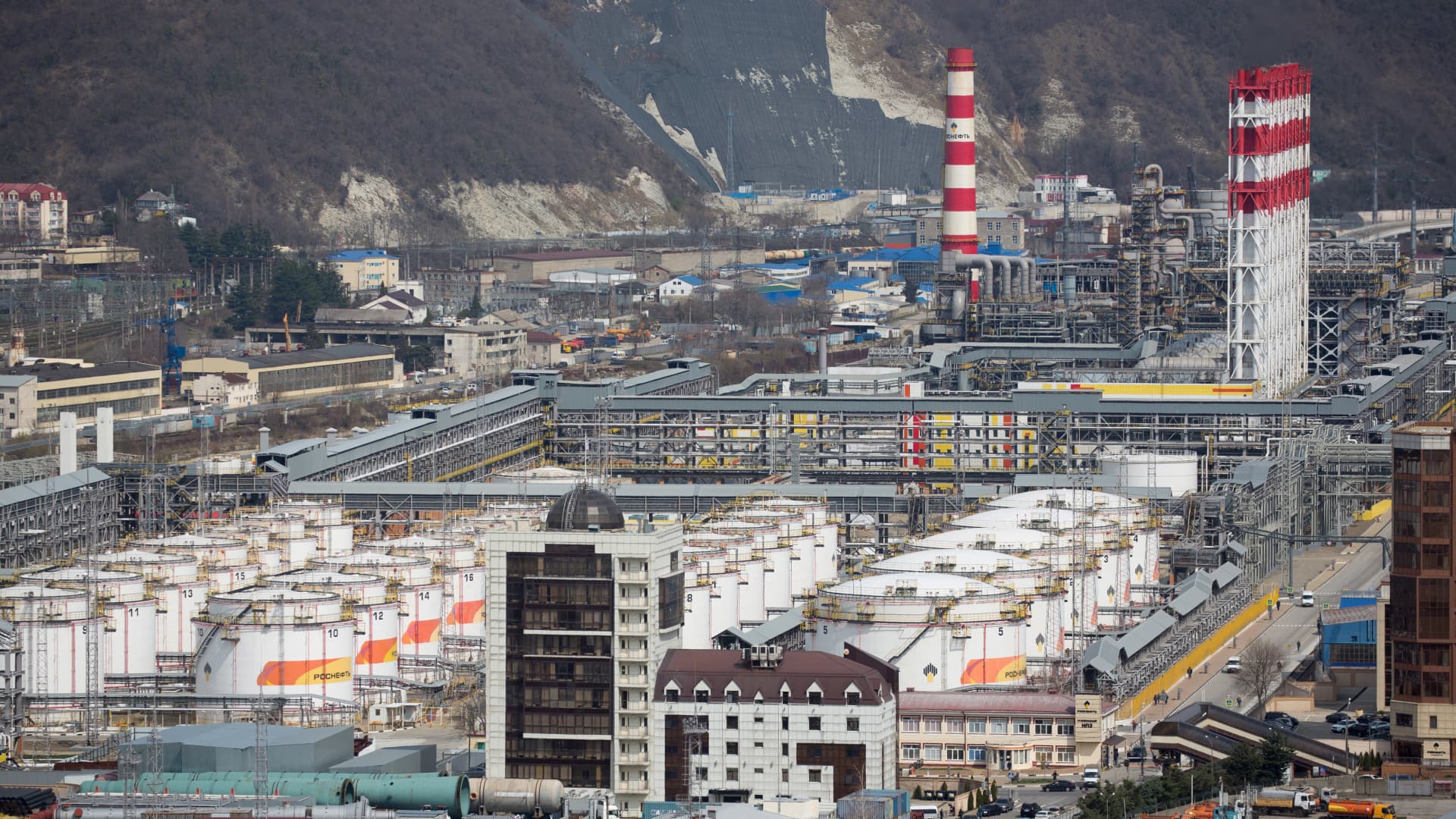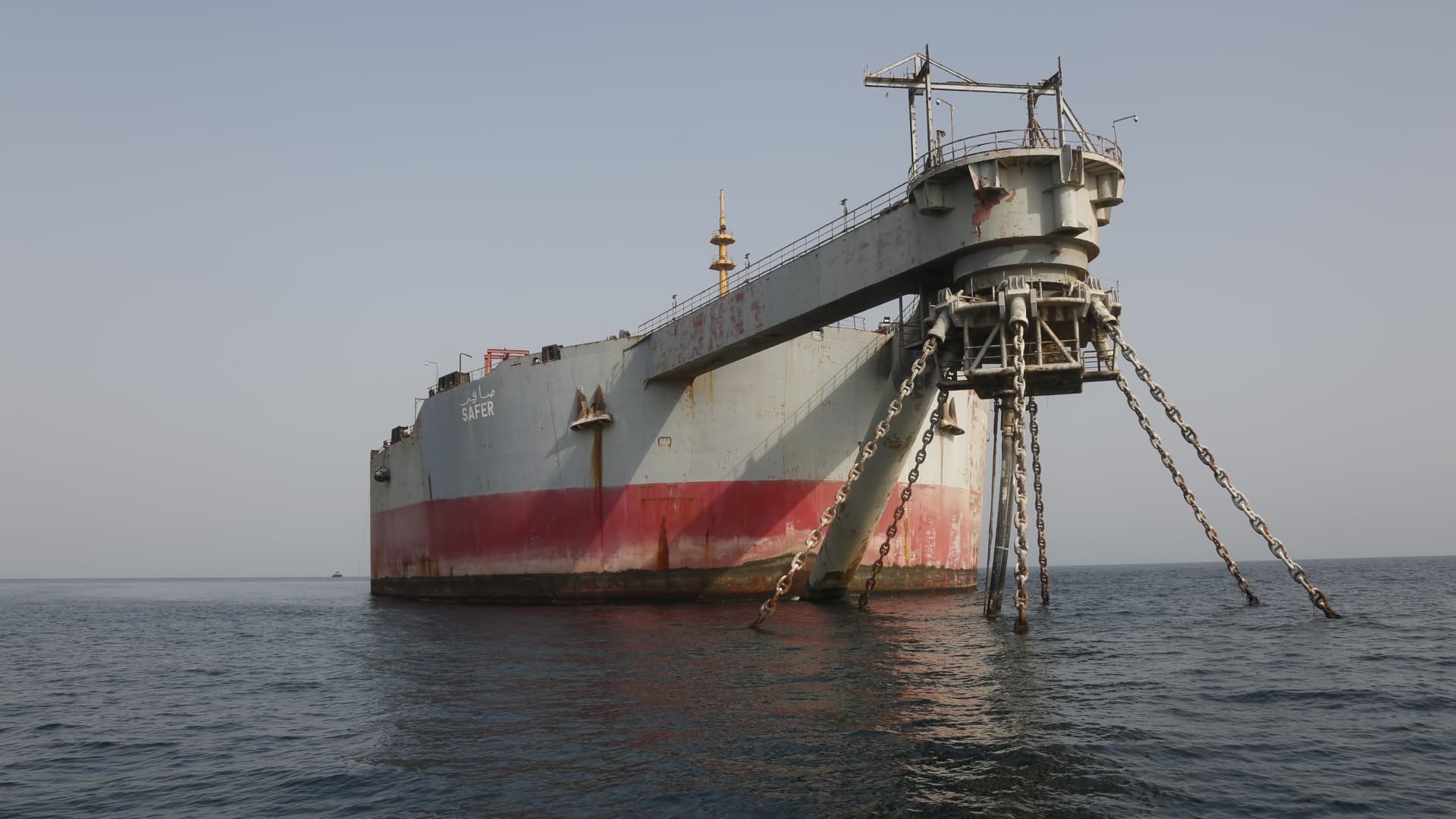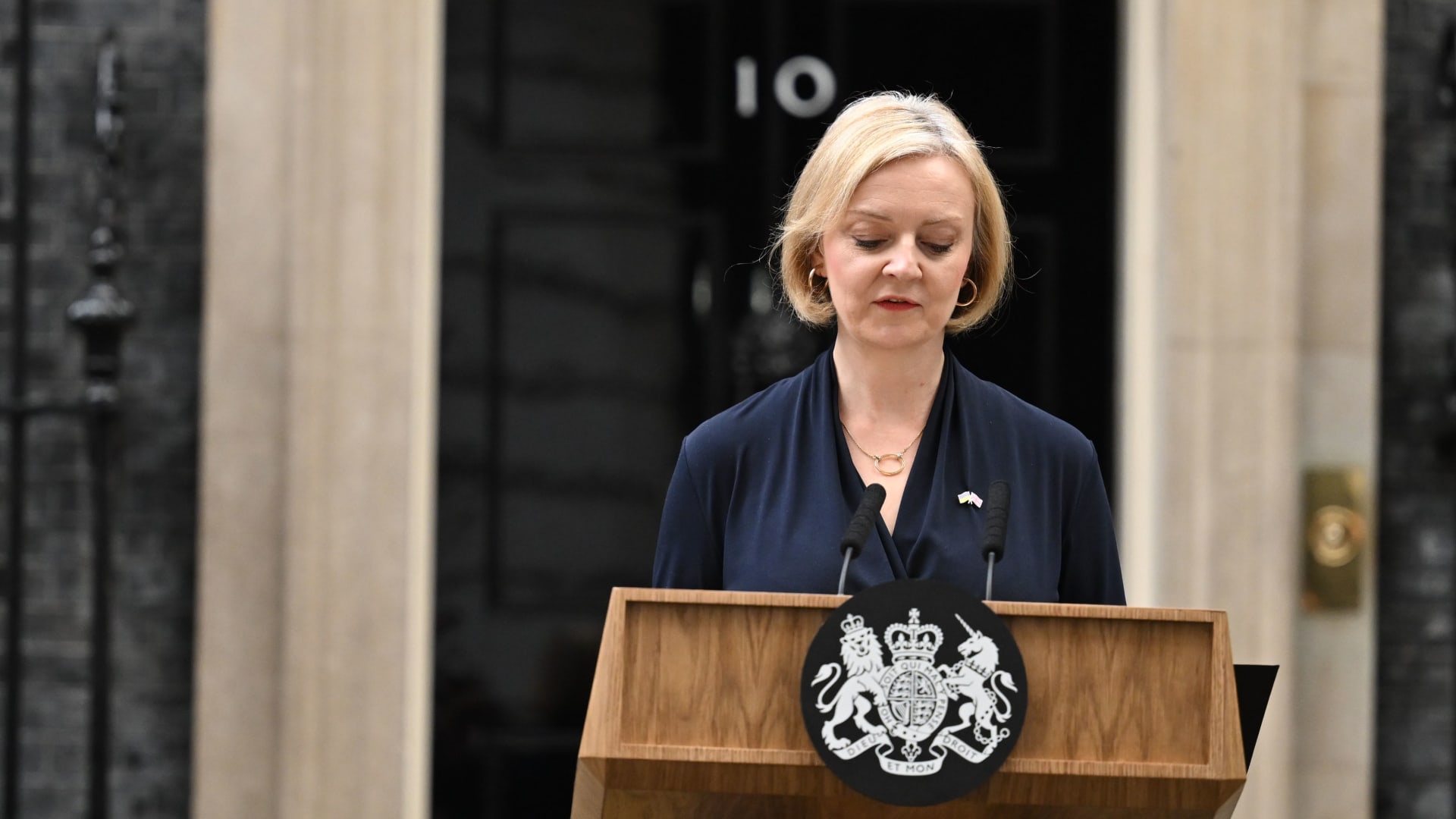While there are alternatives to Russian oil, they would be insufficient or difficult logistically if the U.S. and its allies were to ban Russian energy imports, analysts said Tuesday.
“There’s just no way even OPEC+ and even combined Iran and Venezuela could make up for it,” Vandana Hari, founder of energy intelligence firm Vanda Insights, told CNBC’s “Squawk Box Asia.”
Russia’s war in Ukraine shows no sign of abating as the U.S. and its allies weigh banning Russian oil and natural gas imports. Oil prices spiked to highs not seen since 2008, though later pared those gains. There was also concern that Russia could retaliate by cutting natural gas supplies to Europe.
To be sure, some Russian capacity could be replaced, Hari said.
Russia exports about 5 million barrels of crude oil per day, according to the International Energy Agency. Of that, Hari said about 2 million could be replaced if OPEC members Saudi Arabia, Iraq, Kuwait and the United Arab Emirates “were able to simultaneously stretch themselves to their maximum capacity.”
Hari said, however, a lot of the spare capacity within OPEC and its allies, known as OPEC+, is also Russian.
The problem is OPEC+ would have to “reopen” their production quota system and it “just does not seem inclined to do anything of that sort just yet,” she said. Any cuts or increases to the output of OPEC+ countries are measured against a baseline — the higher that number, the more oil a country is allowed to pump.
Regina Mayor, KPMG’s U.S. national sector leader of energy and natural resources, also added that OPEC+ has been “incredibly disciplined around how they return crude to the market.”
“There are other sources of oil supply. It’s just really questionable about how quickly they can come online, the logistics of getting them to where they’re actually needed,” she told CNBC on Tuesday.
Elsewhere, the U.S. was reportedly also in discussions with Venezuela to lift sanctions on its oil, as it sources for alternatives to Russia.
But even if those sanctions were lifted, Hari said that would only free up another 100,000 barrels a day from Venezuela — “certainly nothing that would come even close to offsetting the disruption in Russian supplies.”
Russia is the world’s third-largest oil producer after the U.S. and Saudi Arabia. It’s also the biggest exporter of crude oil to global markets and the top supplier of natural gas to the European Union, about 43%.
Last week, Europe’s energy chief told CNBC the EU has a contingency plan in case Russia cuts off gas supplies to the bloc. The EU has repeatedly talked up the need to diversify its suppliers, but that has not materialized. Now, amid a war in Ukraine on its eastern flank, the European Commission, the executive arm of the EU, has said it wants to finally put an end to this dependency on Russia.
— CNBC’s Silvia Amaro contributed to this report.




